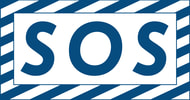Are you ready to take the next step?
|
There are a million ways you can contribute to the cause, large or small. Sign up for our newsletter to keep on top of upcoming roundtables, meetings, and other actions. Contact us if you'd like to contribute your expertise, want to ask questions, or want to get involved.
|
Contact Your Local + National Representatives
Please see your local area page for information on how to contact your representatives. A sample letter can be found below.
Contact Your State RepresentativesFor state-level contact information, please click here.
|
In 1976, EPA Administrator Russell Train delivered a speech, entitled “Aviation Noise: Let’s Get on with the Job,” noting that aviation noise was recognized as a national problem around 1940 and emphasizing the need for a safe, quiet, healthy air transport system. In 2021, the problem persists and the Federal Aviation Administration (FAA) continues to drag its feet.
Decades of scientific evidence show that aviation noise causes annoyance, stress, and sleep disruption and adversely affects cardiovascular health, mental health, learning, productivity, and quality of life (Münzel, 2018; Basner 2017). These outcomes impose substantial economic costs to our CCPSD for health care (Correia, 2013), lost productivity, and remedial learning. The relationship between noise and cardiovascular disease is well understood (Münzel,2020; Hahad, 2019; Münzel, 2018; Basner, 2014). Low frequency aviation noise is particularly hazardous (Alves, 2020).
Although there are Federal funds available to pay for noise mitigation, assistance in applying for these funds has not been offered to our local schools, businesses and residences within the impact radius of our local airports that would probably qualify.
We urge (insert your reps here) to support recent bills addressing some of these concerns and introduce new legislation as necessary. These bills include;
1) Safe and Quiet Skies Act (Rep. Case; HR 4547, 2019, 2021) to impose safety requirements on commercial air tour flights, and for other purposes
The Improving Helicopter Safety Act (Rep Maloney; HR 4880, 2019), a complementary bill to prohibit certain helicopter flights over major cities with high population densities;
2) Fairness in Airspace Includes Residents Act (Rep. Speier; HR 5109, 2019) to add as co-equal and secondary priorities to safety, the efficient use of the airspace, the reduction of noise and health impacts in the community, and the reduction of other environmental impacts of aviation;
3) Aircraft Noise Reduction Act (Rep. Joe Neguse; HR 5423, 2019 and 2017) to authorize owners or operators of general aviation airport sponsors to impose certain restrictions for the purpose of reducing noise; and
4) HR 712 (Rep. Lynch, 2021) for a report on health impacts of air traffic noise and pollution.
We urge Congress to work with the FAA and stimulate innovation by enforcing the FAA Reauthorization Act of 2018 and to enact additional legislation that provides incentives for responsible behavior by manufacturers. Above all, airport sponsors must be granted explicit authority to adopt noise regulations, including limits on the number, type, and timing of operations, to protect the health and well-being of their communities and hold operators responsible.
Decades of scientific evidence show that aviation noise causes annoyance, stress, and sleep disruption and adversely affects cardiovascular health, mental health, learning, productivity, and quality of life (Münzel, 2018; Basner 2017). These outcomes impose substantial economic costs to our CCPSD for health care (Correia, 2013), lost productivity, and remedial learning. The relationship between noise and cardiovascular disease is well understood (Münzel,2020; Hahad, 2019; Münzel, 2018; Basner, 2014). Low frequency aviation noise is particularly hazardous (Alves, 2020).
Although there are Federal funds available to pay for noise mitigation, assistance in applying for these funds has not been offered to our local schools, businesses and residences within the impact radius of our local airports that would probably qualify.
We urge (insert your reps here) to support recent bills addressing some of these concerns and introduce new legislation as necessary. These bills include;
1) Safe and Quiet Skies Act (Rep. Case; HR 4547, 2019, 2021) to impose safety requirements on commercial air tour flights, and for other purposes
The Improving Helicopter Safety Act (Rep Maloney; HR 4880, 2019), a complementary bill to prohibit certain helicopter flights over major cities with high population densities;
2) Fairness in Airspace Includes Residents Act (Rep. Speier; HR 5109, 2019) to add as co-equal and secondary priorities to safety, the efficient use of the airspace, the reduction of noise and health impacts in the community, and the reduction of other environmental impacts of aviation;
3) Aircraft Noise Reduction Act (Rep. Joe Neguse; HR 5423, 2019 and 2017) to authorize owners or operators of general aviation airport sponsors to impose certain restrictions for the purpose of reducing noise; and
4) HR 712 (Rep. Lynch, 2021) for a report on health impacts of air traffic noise and pollution.
We urge Congress to work with the FAA and stimulate innovation by enforcing the FAA Reauthorization Act of 2018 and to enact additional legislation that provides incentives for responsible behavior by manufacturers. Above all, airport sponsors must be granted explicit authority to adopt noise regulations, including limits on the number, type, and timing of operations, to protect the health and well-being of their communities and hold operators responsible.
